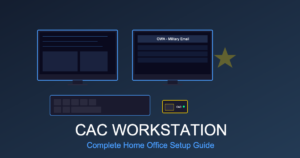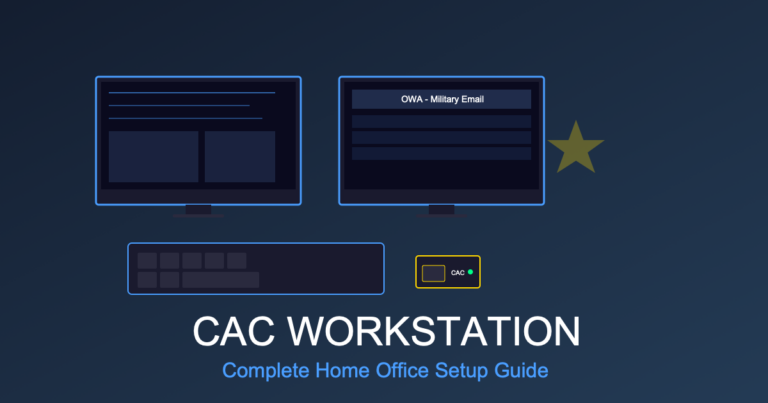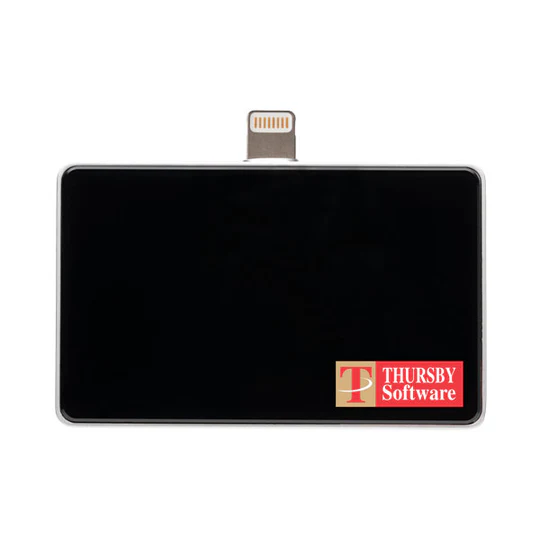How to Store Your CAC Card Securely
Common Access Cards (CAC) are critical for military personnel and government employees. They grant access to classified information, secure networks, and facilities. Ensuring that your CAC card is securely stored is essential to maintaining security protocols and protecting sensitive information. Here are several guidelines to help you store your CAC card securely and responsibly.
Understanding the Importance of Secure Storage
Your CAC card gives you access to sensitive information and secured facilities. Misplacement or unauthorized use can lead to security breaches. Proper storage and handling are essential to prevent unauthorized access and potential security threats.
Use RFID-Blocking Wallets or Sleeves
RFID-blocking wallets or sleeves protect against electronic pickpocketing. These devices can prevent unauthorized scanning of your card’s chip. Investing in an RFID-blocking wallet or sleeve is a simple and effective way to shield your CAC card from potential threats.
Regularly Inspect Your CAC Card
Check your CAC card regularly for signs of wear and tear. Any physical damage may compromise its functionality and security features. If you detect any issues with your card, report it to your security officer immediately for a replacement.
Store in a Secure Location When Not in Use
When you’re not using your CAC card, store it in a secure location. This could be a locked drawer, safe, or a secure office cabinet. Avoid placing it in easily accessible locations where others might have unauthorized access.
Do Not Share Your CAC Card
Your CAC card is for your use only. Do not share it with anyone, even if they are a colleague or superior. Allowing someone else to use your card is a serious security risk and could lead to disciplinary action.
Use Strong Passwords and PINs
Your CAC card often comes with a PIN to ensure additional security. Choose a strong, unique PIN that is not easily guessable. Avoid using common numbers like ‘1234’ or your birth year. Regularly update your PIN to enhance security.
Avoid Writing Down Your PIN
Never write down your PIN, especially not on your CAC card or in its vicinity. If you must record your PIN, use a secure, encrypted digital method rather than writing it on paper.
Minimize Exposure to Unauthorized Individuals
Be cautious about where and when you use your CAC card. Minimize its exposure in public areas or with individuals who do not have authorized access. Always be aware of your surroundings when using your card.
Stay Informed on Security Protocols
Regularly refresh your knowledge of security protocols related to CAC cards. Attend mandatory training sessions and stay updated with any changes in policies. Awareness can go a long way in maintaining the security of your card.
Report Lost or Stolen CAC Cards Immediately
If your CAC card is lost or stolen, report it immediately without delay. Prompt action can help mitigate potential security breaches. Inform your security officer and follow the procedures for deactivation and replacement.
Use a Lanyard for Convenience and Security
Using a sturdy lanyard can help you keep your CAC card on you at all times. It reduces the likelihood of losing it and keeps it readily available for authorized use. Ensure the lanyard is durable and secure.
Be Careful with Card Readers
When using card readers, be careful and gentle to prevent physical damage to your CAC card. Avoid forcing the card into the reader and always follow the proper procedures for insertion and removal.
Beware of Counterfeit Cards
Counterfeit CAC cards are a security threat. Be vigilant and knowledgeable about the security features of a legitimate CAC card. If you suspect someone is using a counterfeit card, report it to your security officer immediately.
Update Your Card Regularly
CAC cards need regular updates to maintain their security and functionality. Ensure you follow the update schedules and complete any necessary procedures for card updates and renewals as directed by your security protocols.
Keep Your Card Clean and Dry
Maintaining the physical condition of your CAC card is important. Keep it clean and dry at all times. Avoid exposing it to extreme temperatures, liquids, or chemicals that could damage its components.
Be Aware of Phishing Scams
Phishing scams targeting CAC cardholders are common. Never provide your card details online or over the phone unless you are certain of the recipient’s identity and legitimacy. Always verify communication sources before responding.
Keep Backups and Copies Secure
If you are required to have backup copies of your CAC card or related information, ensure they are stored securely. Use encryption and secure storage solutions for digital copies. Physical copies should be stored in a locked location.
Educate Your Peers
Help maintain overall security by educating your peers about the importance of CAC card security. Share best practices and encourage others to follow the prescribed guidelines for proper card handling and storage.
“`









